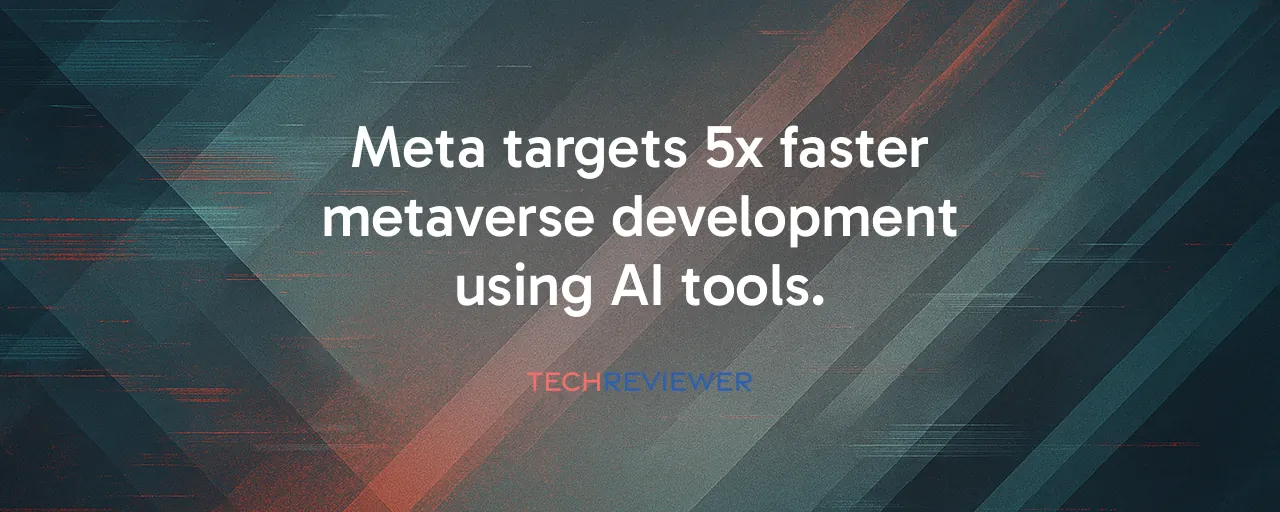A Bold Leap for Metaverse Development
Meta's metaverse division is doubling down on artificial intelligence to revolutionize how its teams build virtual worlds. Vishal Shah, the company's Vice President of Metaverse, has called on engineers, product managers, and designers to use AI tools to work five times faster, a goal he dubs 'AI4P', or AI for Productivity. The directive, shared in an internal message in October 2025, pushes for AI to become as routine as any other tool, woven into every major codebase and workflow. This ambitious plan comes as Meta's Reality Labs division grapples with over $60 billion in losses since 2020, raising the stakes for faster, more efficient development.
The vision is clear: shrink feedback loops from weeks to hours and let anyone, from coders to non-technical staff, prototype ideas rapidly. Shah wants teams to move beyond incremental gains and rethink how quickly they can bring metaverse products to life. It's a high-pressure move, especially as Reality Labs reported a $4.53 billion operating loss in Q2 2025 against just $370 million in revenue. The question is whether AI can deliver the speed Meta needs to turn its metaverse vision into a viable reality.
AI Tools in Action: Promises and Pitfalls
Meta's developers are leaning on tools like Cursor Pro, Claude 3.5, and GitHub Copilot to write code, spot bugs, and prototype at unprecedented speeds. Research backs up the potential: GitHub Copilot has shown 55% productivity gains in controlled tests, with some enterprises seeing 31.8% faster pull request reviews and 28% more code shipped. For example, fintech product managers using tools like Uizard have prototyped three onboarding flows in a single afternoon, a process that once took weeks. Meta's goal is to extend these capabilities to non-engineers, letting designers and managers build functional prototypes without deep coding expertise.
But the road isn't all smooth. A July 2025 study of experienced open-source developers found AI tools slowed task completion by 19%, despite predictions of time savings. The issue? AI often generates code that's functional but lacks long-term maintainability, piling up technical debt. At a North American bank, technical debt already accounted for over $2 billion in costs across 1,000 applications. Meta's push to integrate AI into every workflow risks similar challenges, especially if rushed code compromises quality for speed.
Learning From Others: Spotify and Lovable's AI Journey
Meta isn't alone in chasing AI-driven productivity. Spotify, a leader in audio streaming, has embraced generative AI for new code creation, with Co-President and CTO Gustav Soderström noting its biggest impact comes in greenfield projects. Startups, unburdened by legacy systems, see stronger gains, as AI tools excel at writing fresh code rather than untangling old codebases. Spotify's approach shows how AI can accelerate innovation when paired with clear goals, but it also highlights limitations in complex, established systems like Meta's metaverse platforms.
Meanwhile, Lovable, an AI prototyping platform, claims 180,000 paying customers but only showcases three success stories after eight months. Most of its 10 million projects are demos, not production-ready apps, suggesting AI shines in early-stage experimentation but struggles with mission-critical systems. Meta's challenge is to bridge this gap, ensuring AI-driven speed doesn't sacrifice the robustness needed for scalable metaverse experiences. These case studies underscore a key lesson: AI's value depends heavily on context, from project type to team expertise.
Balancing Speed With Stability
Meta's AI push carries big implications for its metaverse future. Faster development could mean quicker feature rollouts, like smoother virtual workspaces or immersive training simulations, which are already gaining traction in healthcare and manufacturing. But speed comes with risks. AI-generated code can create fragile systems if not carefully vetted, and Meta's losses approaching $70 billion since late 2020 amplify the pressure to deliver results without cutting corners. Shah's vision of hourly feedback loops is exciting, but it hinges on developers mastering AI tools without losing sight of quality.
The broader industry is watching closely. If Meta succeeds, it could set a blueprint for AI-driven development, showing how tools like Claude and Copilot can scale innovation. If it stumbles, the fallout, think buggy platforms or ballooning technical debt, could fuel skepticism about AI's role in enterprise settings. Meta's training initiatives, including two Metaverse Day of AI Learning events in 2025, aim to get 80% of its metaverse staff using AI daily by year's end. The outcome will shape not just Meta's metaverse but the future of how we build digital worlds.
